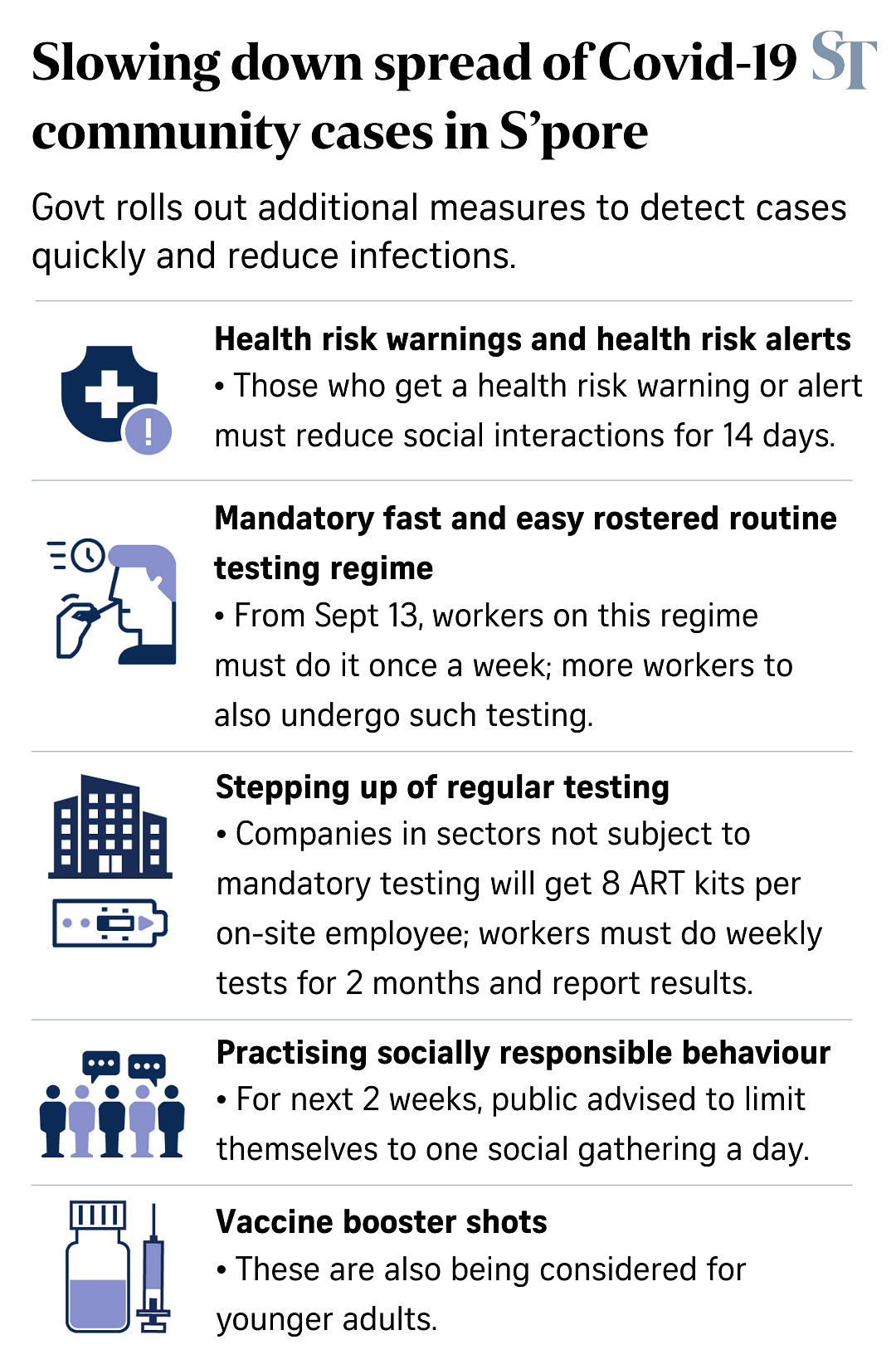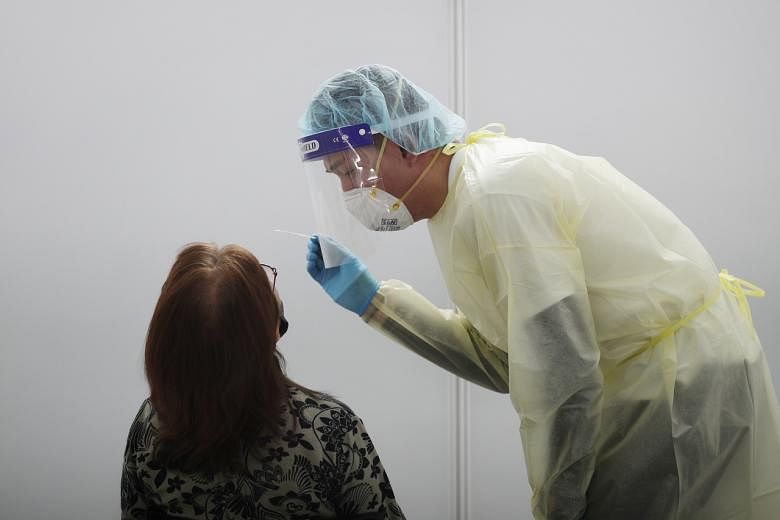SINGAPORE - Singapore will expand its testing regime more aggressively to keep the Covid-19 situation under control, as the number of new infections last week doubled to more than 1,200 - up from around 600 cases the week before.
Announcing a range of measures on Monday (Sept 6) to slow the spread, Finance Minister Lawrence Wong said workers in more sectors will now have to undergo mandatory fast and easy rostered routine testing, with the frequency of tests increased from every 14 days to once a week.
To ring-fence cases more quickly, the Government will also issue health risk warnings (HRW) to individuals identified as close contacts of Covid-19 cases or who have been near a patient for an extended period of time.
Individuals who receive a health risk warning will be required by law to get a polymerase chain reaction (PCR) test and self-isolate until they receive a negative result for their first test. They will also be required to do an antigen rapid test (ART) thereafter, and a PCR test on the 14th day.
Meanwhile, those whose SafeEntry records overlap with that of Covid-19 cases will get health risk alerts (HRA). They are not required to get tested, but are strongly encouraged to go for a PCR test as soon as possible, said the Ministry of Health (MOH).
HRW and HRA are not quarantine orders, MOH said, but individuals who get them should reduce their social interactions for 14 days.
Mr Wong, who co-chairs the multi-ministry task force handling Covid-19, said a rise in cases was expected as restrictions were eased and activities resumed.
"What is of concern to us is not just the absolute number of cases, but the rate at which the virus is spreading," he said, noting that the experience of other countries has shown that many more people will need intensive care or die when cases rise so sharply.
"It's not just the unvaccinated seniors, because even for vaccinated persons, there will be a small proportion of them falling severely ill."
MOH said Singapore's rate of severe illnesses and deaths among vaccinated individuals is low, thanks to the country's high vaccination coverage.
But unvaccinated individuals remain susceptible - over the past 28 days, 6.7 per cent of unvaccinated cases fell severely ill or died, it noted.
Meanwhile, the number of new infection cases in the community has almost doubled to more than 1,200 cases in the week ending Sept 5, up from around 600 cases in the week before.
"If the infection continues at this trajectory, we will see a doubling of cases every week. This means that we can expect to see more individuals suffer serious consequences," said MOH.
"Thus, we need to take quick action now to dampen the increasing likelihood of an exponential increase in cases. This will also buy us time to get more people, in particular seniors, vaccinated as soon as possible, and also to roll out our booster programme to those aged 60 and above."
To detect cases early, mandatory rostered testing will be extended to retail mall workers, supermarket staff, last-mile delivery personnel - including parcel and food delivery workers - as well as public and private transport workers such as taxi drivers, private-hire car drivers and all public transport front-line staff.
Previously, only workers in higher-risk settings such as food and beverage outlets, personal care services, and gym and fitness studios needed to undergo such tests.
These tests will continue to be administered primarily through the Employer Supervised Self-Swab scheme. The Government will pay for the cost of all tests under this enhanced surveillance regime, for both vaccinated and unvaccinated individuals, until the end of this year, MOH said.
More details on the enhanced surveillance regime will be released at a later date, MOH said.
The Government will also distribute ART kits to companies in sectors which are not subject to mandatory testing. Each firm will get eight ART kits per employee to facilitate weekly testing of their staff over a two-month period.
"With these kits, we expect all companies to initiate weekly testing for their onsite staff," said MOH.
While these tests can be administered by individuals at home or at the work premises, MOH said employers should put in place a process to ensure that the tests are done properly, and report the results to respective government agencies.
More details on this will also be made available at a later date.
"With all these measures, we hope that we can help to slow down transmission without having to go back to (a state of) heightened alert, or a circuit breaker," Mr Wong told reporters in an interview at The Treasury.
"These are last-resort measures and we will try our best to refrain from using them. But we should not rule them out entirely," he added, urging people to get tested regularly and scale back their non-essential social activities during this period.
Read next - New measures to control Covid-19 in Singapore: What you need to know



